10 conclusions from the Tour of Flanders
Boonen's third triumph, Cancellara and the new route
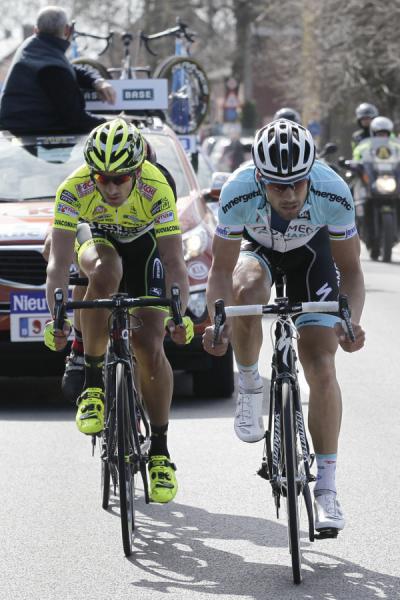
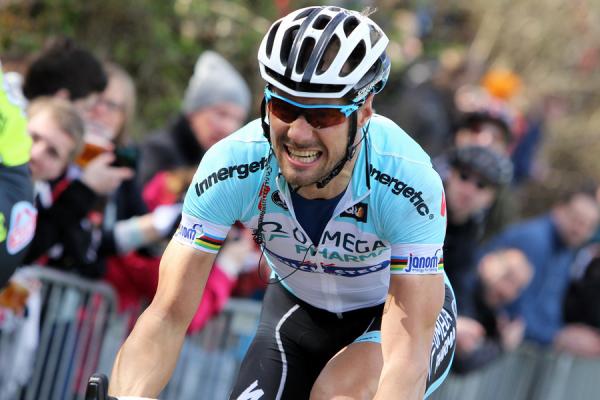
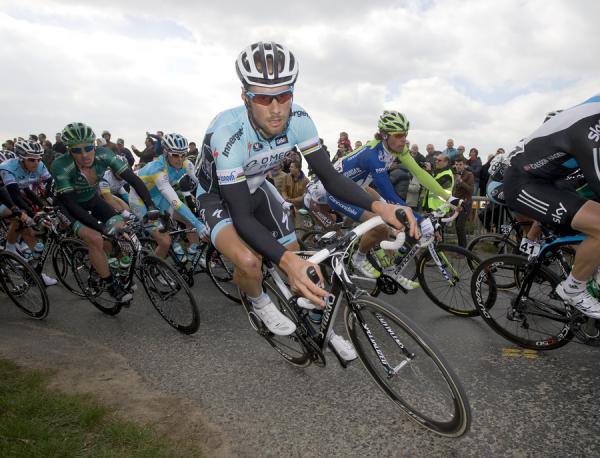
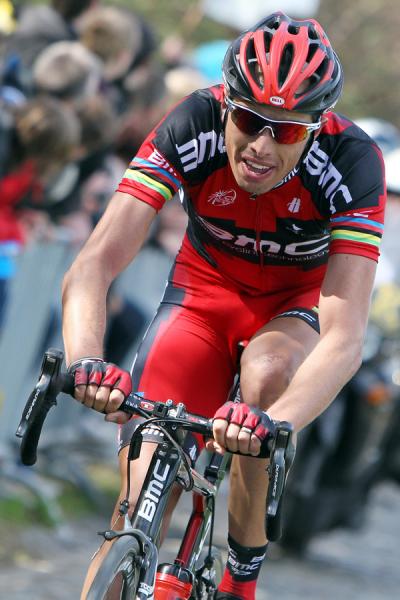
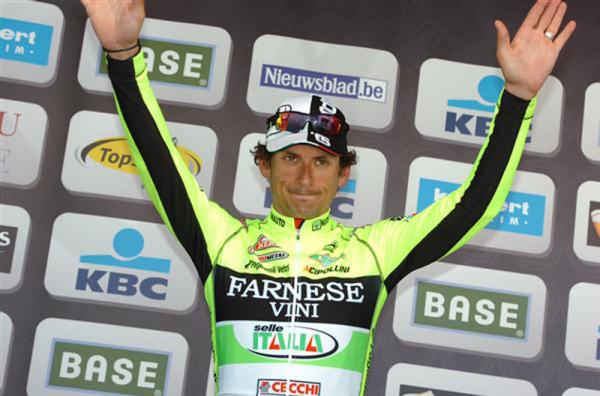
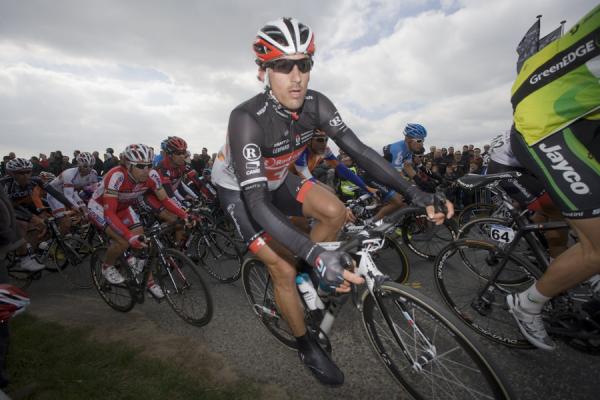
1. In the space of 61 kilometres Tom Boonen has turned the tables on his arch rival Fabian Cancellara to reassert himself as the leading cobbled Classics rider of his generation. Heading into this campaign he held a 5-3 lead over Cancellara in the Tour of Flanders and Paris-Roubaix, but the momentum appeared to be with the RadioShack-Nissan juggernaut that had reduced Boonen’s lead from 5-1 in the last two years.
But the Belgian now leads Cancellara 6-3 and next weekend he has the chance not only to put further ground into Cancellara, but to equal Roger de Vlaeminck's record of four victories in Paris-Roubaix. Cancellara of course has a Milan-San Remo victory in his palmares (making the count 6-4 in terms of Monument wins overall) but Boonen is the marker of cobbles success, no question.
What has marked Boonen out above all his modern-day rivals is neither his sprint nor his power on the bergs, but his sheer consistency and resilience. Cocaine troubles, bad knees and a fading sprint have all been hurdles but on each occasion he has returned. He may not be the Boonen of 2005 but that matters little. Back then he was competing against a fading old guard as the likes of Van Petegem, Museeuw, Zabel and Bettini began to creak towards retirement, while in a lean period between 2010 and 2011 Boonen had to contend with huge expectations and the emergence of Cancellara. Even if Boonen fails to win another Classic for the rest of his career he will bow out as a national hero and leave the next generation of Classics riders with a huge vacuum to fill.
2. If Flanders has cemented Boonen’s standing and renaissance then what of Cancellara? The unfortunate Swiss was the favourite heading into Flanders but with the first part of the season over, Cancellara must take stock on what has played out this spring. He’s had his fair share of disappointments in the Classics – his 2009 season a good example – and while Boonen has stretched his lead in Classics wins, Cancellara has stuttered since his 2010 season. Last year he missed his edge in the time trials, and his Classics season fell short. His broken collarbone robbed everyone of the expected showdown in Flanders, but a year from now there’s nothing to suggest that we won’t be toasting the comeback and rebirth of another Classics legend, just as we’ve done with Boonen this year.
3. At the finish in Flanders BMC’s Jim Ochowicz claimed that Filippo Pozzato (Farnese Vini-Selle Italia) hadn’t tried to win the race. His rationale was based on the Italian’s lack of aggression in the closing kilometres. With Ballan aware he would lose the sprint, Ochowicz’s charge unleashed three attacks in the finale kilometres to Pozzato’s nil and there is certainly an argument to suggest that a greater collaboration could have worn Boonen down.
But Pozzato must have had confidence in his sprint and more importantly felt that the constant accelerations from Ballan were weakening Boonen further. Ochowicz also said that the strongest rider won the race, which is a far better and fairer assessment of the race. Yes, Pozzato looked the smoothest on the climbs, and Ballan was the most aggressive, but Boonen was equal to everything thrown down at his feet and came home with the win.
4. And so to the new route. The Muur and the Bosberg were wiped from the parcours and in their place a three-lap block set to repeat, with a new finish in Oudenaarde thrown in for good measure. Scanning opinions from various sources on the internet, expressions like boring, dull and mundane were being routinely banded around. Hold on: the so called ‘traditional route’ has only been used since the 1970s and let's not forget there were plenty of editions of the race in that period that weren’t exactly thrilling. The new route is exactly that, new, and will take some time getting used to. With a year of experience, teams will modify their tactics, riders will race more aggressively and playing fields in talent will ebb and flow. And don’t forget the conditions: If Sunday’s race had taken place in rain and wind we’d have seen a far different race – perhaps the same top three – but a far different second group.
Get The Leadout Newsletter
The latest race content, interviews, features, reviews and expert buying guides, direct to your inbox!
5. In terms of general tactics, it’s hard to pick fault with any team or individual. Pozzato, as always, has been made the scapegoat but his thought process of waiting for the sprint seems sound. He’s beaten Boonen in sprints before, notably at Harelbeke in 2009, and his timing to chase down Ballan was impeccable. Peter Sagan, on the other hand, perhaps made slight errors. The Liquigas-Cannondale rider should not have moved to the front to chase Ballan down on the Kwaremont. He had Boonen on his wheel and it was up to Omega Pharma-QuickStep to reel the BMC rider back in. That effort cost Sagan vital energy once Pozzato had cut loose on the climb. If Sagan had been fresh enough to go with Boonen, Ballan and Pozzato the entire race could have been different. Boonen said after his Gent-Wevelgem win that Sagan needed a wiser head in his set up and that’s ever more the case. Will Liquigas sign a road captain or will Sagan run down his contract and take over the mantle from Boonen at QuickStep?
6. With Cancellara out of Roubaix, the battleground for Sunday’s race changes somewhat. In 2010, Cancellara was so strong that he had the entire field beaten before the start, while last year his strength became a weakness and he was marked out of the race. No Cancellara means teams can go into the race with different strategies, because as Matt White told Cyclingnews, there’s no longer a single rider who can solo away from everybody. Boonen is now the favourite and he will certainly fancy his chances. There are few places where his rivals can trouble him, but Ballan and Pozzato will certainly take confidence from their rides in Flanders, although if the same three escape in the finale, Pozzato may choose to employ different tactics.
7. Combine all the wins from Euskaltel-Euskadi (1), Cofidis (1), Astana (1), RadioShack-Nissan (2), BMC (2), Lampre-ISD (2), Saxo Bank (2), Rabobank (3), Europcar (3), and Vacansoleil-DCM (5) and you still don’t have the tally picked up by Omega Pharma-QuickStep this season (24).
8. Ballan and Pozzato came mightily close but their efforts weren’t good enough to end an Italian drought in Monuments dating back to Damiano Cunego’s 2008 Tour of Lombardy win. At least they’re faring better than the French, who have to scroll back to Guesdon’s 1997 win for their last taste of success.
Monument wins by nation since and including the 2002 season:
Belgium 16
Italy 16
Switzerland 5
Spain 5
Australian 3
Kazakhstan 2
Germany 1
Sweden 1
Luxembourg 1
Great Britain 1
USA 1
France 0
9. Cancellara’s fall leaves RadioShack with a point to prove and one they’ll gladly accept. The easy option on Sunday would have been for their riders to sit up and roll into the finish, but their qualities were shown when they placed 3 riders in the top 25. They had all 8 men with Cancellara just as he fell and their numbers would have been a genuine concern for Omega. With Gregory Rast and Hayden Roulston they have top ten riders for Roubaix, but it’s Tony Gallopin who has really caught the eye this spring. Roubaix maybe be too much for him but he’s been impressive enough already this spring to suggest he’s capable of more.
10. Philippe Gilbert’s cameo mid-way through the race reminded us of two things. The first being his class but the second of just how far his stock has fallen since the start of the season. The Ardennes Classics begin in earnest in less than two weeks and Gilbert faces a race against time in order to defend his titles in Amstel, Fleche and Liege. He’s come away with a Monument win in each of the last three seasons – something neither Boonen and Cancellara have achieved – but returning with a win from the Ardennes looks like an impossible mission at present.
Daniel Benson was the Editor in Chief at Cyclingnews.com between 2008 and 2022. Based in the UK, he joined the Cyclingnews team in 2008 as the site's first UK-based Managing Editor. In that time, he reported on over a dozen editions of the Tour de France, several World Championships, the Tour Down Under, Spring Classics, and the London 2012 Olympic Games. With the help of the excellent editorial team, he ran the coverage on Cyclingnews and has interviewed leading figures in the sport including UCI Presidents and Tour de France winners.
